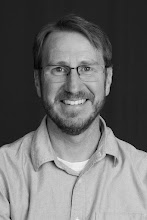After months of waiting and wondering I received a letter today.
While I was preparing my application (back in the fall) I found reading successful PhD applicants' Statements of Intent very helpful. Here's what I wrote to the TST Admissions Committee:
TST Statement of Intent - Jason Mills
If my denominational colleges are any indication of broader trends in Christian higher
education, then Canadian Bible Colleges and Seminaries are undergoing radical changes
in how they train leaders. The two denominational colleges of the Evangelical
Missionary Church of Canada—Rocky Mountain College, Calgary, AB and Emmanuel
Bible College, Kitchener, ON—are making sweeping changes in curriculum and format:
fewer full-time faculty members, more options for non-resident students (R.M.C. has
done away with residency altogether), more courses designed and delivered online by
American faculty, etc. These changes affect pastoral formation. The main rationale for
the shifts appears to be financial with very little consideration given to student formation.
That concerns me.
I am interested in studying the impacts that changes in curriculum, class format, and
faculty involvement have on pastoral and congregational formation. My purpose for this
focused study is simple: I see a need for a renewed, clear, and effective educational
philosophy as a foundation for training leaders for the 21st century church. My research
methodology will focus on examining the shifts in educational philosophy within my own
denominational colleges specifically, and Christian higher education institutions in
Canada generally. I plan to hold Jesus’ ways of teaching and training His disciples in one
hand while holding traditional Christian educational models, including the current
Canadian cultural and educational shifts and tensions, in the other.
My extensive leadership experiences give me a strong basis for my research. As part of
my undergraduate experience, I was granted access into college administrative and
disciplinary meetings. That gave me a glimpse into the organizational functioning of the
college. Immediately after graduation a church called me as their full-time pastor. After
four years I returned to the academy with a firmer grasp on the practice of ministry.
Seminary allowed me to bring my pastoral praxis into my coursework and thesis research.
I focused on postmodernism’s impact on church ministry and its implications for pastoral
leadership in the 21st century. My thesis drew on my experiences in church ministry and
the need for change in Canadian church leadership. I completed my M.A. and served for
twelve more years in pastoral ministry—including leading a multi-staff church in the
midst of significant staff turnover and a shifting congregational ministry philosophy. I
also stepped into the undergraduate classroom and distance education department where I
taught the next generation of pastoral leaders how to think, write, and practice Christian
faith. As a result of my varied professional opportunities I am well equipped to
understand the present shifts in educational philosophy as well as the reality of
congregational ministry.
My language qualifications include six years of French language training in the Ontario
French Immersion program at the elementary and secondary education levels—an asset
when researching Christian Higher Education methodology in French language
institutions in Canada. Additionally, the four semesters of biblical Greek I studied as an
undergraduate pastoral ministry student make it possible to study the life and ministry of
Jesus in the original language.
The Toronto School of Theology is an ideal context for my research. TST’s consortium
of theological schools and relationship with The Ontario Institute for Studies in
Education and The Centre for the Study of Ministry is a near perfect fit for researching
both educational philosophy and ministerial training. My hope is to gain admission to the
University of St. Michaels College in order to work directly with Dr. Mario D’Souza.
His research interests in the philosophy of education and religion in education—as
evidenced in his recent public lecture, “The Catholic University and the Unburdening of
the Real World” would make him an excellent primary supervisor for my research. In a
recent phone conversation he commented that my research interests intersect with his
own. Additionally, Dr. Doug Blomberg has been teaching, administrating, and
publishing in the field of Christian higher education for many years. He is retiring in
June 2017 from the Institute of Christian Studies but he directed me to some helpful
books on the philosophy of education and pastoral praxis. He has agreed to consider
sitting on a PhD advisory committee.
In conclusion, I am pursuing PhD studies because God is calling me. I hope to one day
teach and/or serve in the administration of a Christian higher education institution with
strong pastoral formation programs, backed by sound theological and educational
philosophy. I also plan on staying engaged in church ministry, implementing research
findings and engaging in pastoral formation at the ground level.





